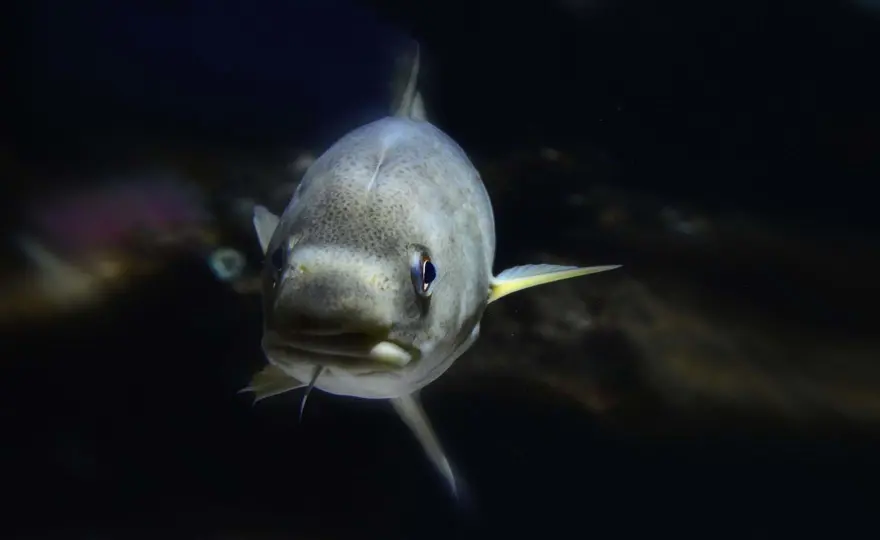
Jenni Grossmann
1st December 2021


Post-Brexit conflict over permission to fish has dominated the headlines lately. But while the EU and UK grapple with stock entitlement, the real issue is being ignored: is today’s fishing going to mean empty nets tomorrow?
In Europe, some species are particularly vulnerable, including almost all cod stocks. The North Sea cod population has dropped by an alarming 80% since 1970. There is not a single year during that period in which it has been fished sustainably – and this has taken its toll.
Scientists have repeatedly sounded the alarm. Baltic cod stocks have basically collapsed, North Sea cod catches must be cut substantially to bring it back from the brink, and in some areas like the Celtic Sea, West of Scotland and Kattegat scientists recommend that no cod should be taken at all.
Negotiations are underway right now between the EU, the UK and Norway to decide how much fish can be caught next year in the North-East Atlantic – ignoring the stark reality of suffering stocks in those decisions could push vulnerable species over the edge.
Despite some progress over the years, EU fisheries ministers have blatantly missed the legal deadline they set for themselves to end overfishing by 2020 – over 40% of the 2021 fishing limits we analysed still exceeded scientific advice.
And we’re just talking about the limits on paper – what is happening at sea is a whole other story. The widespread, now mostly illegal practice of discarding unwanted fish at sea, and the failure to account for this, mean that actual catches often exceed the limits – North Sea cod catches in 2020 overshot the legal limit by 37%, for example.
So what should governments do to finally ensure sustainable fisheries across the board for 2022 and beyond?
Many stocks are in such bad shape that scientists advise cutting catches substantially or even stopping fishing overall. Ministers often seem to think they are doing fishers a favour by allowing unsustainable fishing despite scientific alarm bells. Fisheries closures or cuts may squeeze in the short-term, but stock collapse and its consequences would be infinitely worse. Allowing depleted stocks, including those mostly caught as bycatch, to recover is in the long-term interest of both healthy ecosystems and the fishers that depend on them, so that fisheries can thrive for generations to come.
Taking scientific advice seriously is a must to achieve this, even – or especially – if it is for zero or very low catches.
For many fish stocks, sufficient data just aren’t available, meaning scientists cannot fully assess their situation yet. Scientific catch advice for such stocks, like pollack in the Bay of Biscay and cod in the Irish Sea, is so far based on precautionary considerations because the status of the stock and/or the fishing level is unknown.
But unfortunately, these stocks are often treated with less caution than fully assessed stocks: ClientEarth’s new report shows that the fishing limits for 2021 were still set above the precautionary advice for almost 60% of data-limited stocks.
This is the exact opposite of what should happen. When you know less, it is always better to be safe than sorry – and let’s not forget that this “precautionary approach” is mandated in the law.
No matter how closely governments follow the science on paper, these fishing limits are useless if not respected. This year, France, Spain, Belgium, Ireland and the Netherlands and were given a red card by the Commission for not properly tackling the illegal discarding of unwanted fish at sea. Since scientists partly rely on the reported landings to estimate what is left in the sea, illegal discards jeopardise the reliability of the science fishing limits are based on. Governments must step up checks on fishing operators, and set lower fishing limits to account for discarding, so that these negotiations don’t end up being a waste of time.
The ongoing negotiations are a maze of different processes, so opaque and complex that it is actually easy for governments to continue setting unsustainable limits behind closed doors. Despite improved access for NGOs this year, the general public is still kept in the dark about who is pushing for what until it’s too late and the deal is done. This must change.
Ministers must recognise that fish are not only a valuable resource, but also crucial for a healthy and resilient ocean which is one of the biggest carbon sinks of the planet, protecting us from climate change. If we don’t stop overfishing now, the price will be paid not just by fishers, but by all of us.